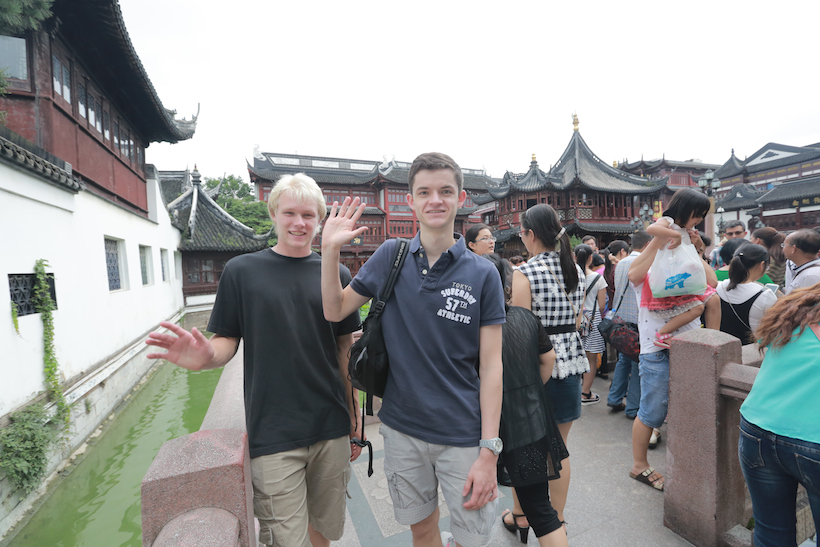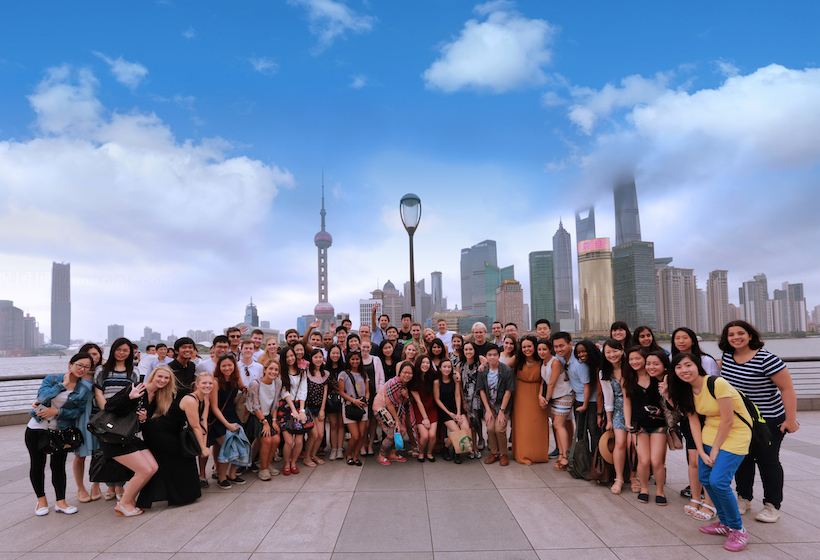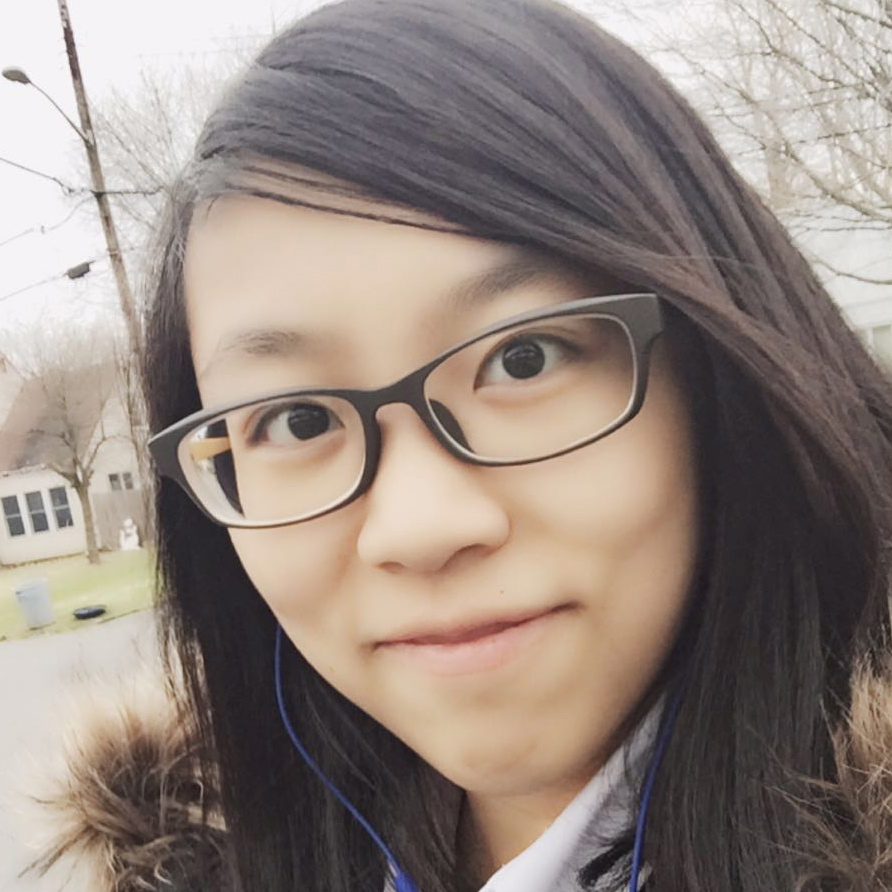Nowadays, it is not uncommon for people all over the world to come to Shanghai on vacations and enjoy themselves. However, when you come to this amazing city as a student, what exactly can you learn?
In the summer of 2015, about 90 undergraduate and graduate students from 26 different countries came to Antai College of Economics & Management, Shanghai Jiao Tong University and participated in the three-week summer program. The program has four sessions: academic lectures, company visits, culture activities and language learning, offering students with lots of opportunities to experience and to discover.
(click play to watch the video introduction of Antai Global Summer Program filmed by Whichmba.net TV Crew)
In recent years, China appears a lot on major media around the globe. Everyone can know about this amazing country without leaving his own house. You can see the beautiful view of the countryside in China as well as the how busy the major Chinese cities are through your television. So why do these young people from top universities travel thousands of miles to China? Why bother coming at all?
Well, if you join a group tour and just go to those famous attractions, take a selfie and leave for the next destination, you are not looking at the real China. One of the speakers invited by Antai College, Graham Earnshaw told the students you have to do more than that. He is the founder of China Economic Review and the author of quite a few well-sold books about China. He has spent more than 40 years living and working in China. During his lecture, he told the students that you have to go pass those high rises and find a small abbey, probably have a few words with the old woman with a fan in her hand, or drink Chinese wines with farmers in countryside, those you get to know the real China.

That is what the students did during their three weeks in Shanghai: trying to understand the real China. So what exactly did they see?
First, Chinese people’s feeling toward houses was really impressive. Maybe for many newlyweds in Europe or America, it is normal to live in a rented house. Probably they will buy a house when they have enough money or when they have a baby. They will always have the money to go on vacation once a year, travel in first class and enjoy delicious food in fancy restaurants. In China, however, they were surprised not only by the high prices of houses and apartments but also by Chinese newlyweds’ (and of course, their parents’) attitude towards houses: they must have a house before they get married, at least they need to have the down payment.

The students learned these “rules” during a special event. Antai College had some alumni families act as host families and took the students home for dinner. Through the talks on the dinner table, they learned that these feelings exist because Chinese want to feel secure and stable. And that is what one host’s answer to the question Why do you need to own a house before you get married: If you live in a house but your name is not on property deed, how can you be relived?
The students were also impressed by the restrooms in China. For many people who have not been to China before, especially for the Europeans and Americans, it might be the first time they see a “squatting pot”. Toilets are not that common in China, because they are more expensive and less convenient to clean. In China, the students had to look for the toilet paper with one hand, keep the door closed with the other and try to maintain balance. This was really a huge challenge for the students who are used to toilets and restrooms with toilet paper.
Actually, the differences in the restrooms show the differencesin culture. In Chinese families, bathrooms usually locate in the northwest corner, which is the ominous place in an apartment or a house according to “Feng Shui”. On the other hand, people from other countries may see bathroom as a place that shows how developed this place is or the quality of life of a family, so they might even put decorations in bathrooms.

The third thing that the students noticed is that there are so many people in China. After all, they are in the country with the most population in the world. Every 1 person in 5 people that live on this planet is from China. Major cities in other countries may also be densely populated, but everywhere is densely populated in China, especially since they came to Nanjing Road in Shanghai during the peak time of tourism of the year.
While some students might think that Shanghai is a really noisy city, with different things going on all the time, but in Chinese culture, big families and lots of people is a sign of prosperity. You can only have a happy retired life when you are surrounded by your grandchildren and even great-grandchildren. In fact, in the old times, it was a great honor if six generations live in one household.
But for foreigners, it is not common. Some people would move out in their early twenties and only come home during holidays or special events. It is definitely less noisy, but Chinese would think that it feels less like home or family.

Moreover, all the students who came to China were all impressed by this huge country with abundant resources. And this means commercial opportunities to the businessmen. The economy of China is growing at an amazing rate and has attracted many foreign companies competing for the biggest market in Asia. Many joint venture companies and oversea-funded enterprises have witnessed the economic revival of this old country. Interesting, the huge country not only means business opportunities to the foreign students, but also means various delicious food. During the interviews, many foreign students mentioned different cuisine from all parts of China. Even if there are many differences among these cuisines, the food is still palatable and the students just couldn’t have enough. And they say the food also shows the culture and wisdom of China.
The summer program has shown a different Shanghai to these foreign students, and it ended with the team work program to show what they learned in Shanghai.
(click play to watch the case study method of Antai Summer Program filmed by Whichmba.net TV Crew)








